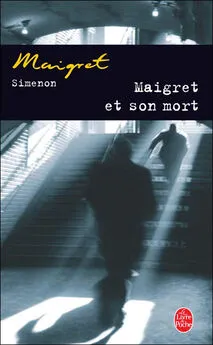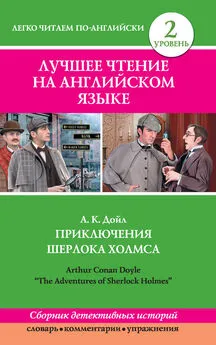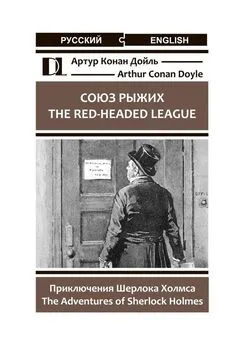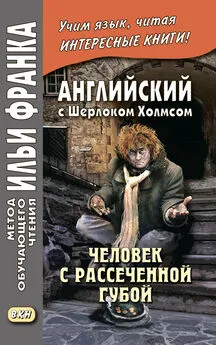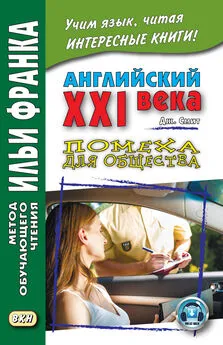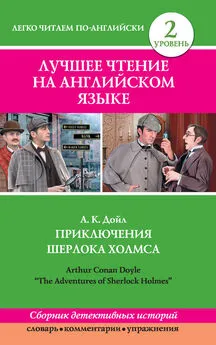John Lescroart - Son of Holmes
- Название:Son of Holmes
- Автор:
- Жанр:
- Издательство:New American Library
- Год:2003
- ISBN:9780451208750
- Рейтинг:
- Избранное:Добавить в избранное
-
Отзывы:
-
Ваша оценка:
John Lescroart - Son of Holmes краткое содержание
John Lescroart offers an engrossing historical mystery that takes us to a small French town in the dark days of World War I-where the rumor is that Auguste Lupa is the son of the greatest detective of all time. And his mysterious legacy may come to light as he attempts to solve the baffling murder of an intelligence agent...
Son of Holmes - читать онлайн бесплатно полную версию (весь текст целиком)
Интервал:
Закладка:
Henri shuddered, crossing one leg over the other and reaching for his bottle. “Good night to get drunk,” he said.
“It’s a good night for something,” Georges agreed philosophically.
I raised my glass. “To something,” I said, and we drank the toast.
Fritz brought in three more beers and left the room, shaking his head sadly. He did not like beer at all.
By now it had gotten dark. The lamps were lit, and the fire stoked, and we had moved to more comfortable seats. We always remained in the big sitting room for these evenings. With its large front window reflecting the lights back in on us, the warm rug, and the variety of furniture, it was ideal for a small gathering of friends. Last spring, before I was sent north, we’d met in the arbor several times, but somehow, after dark, this room was much more comfortable.
Georges and Henri sat on either side of the large fireplace, which commanded one corner of the room, next to the entrance to the dining area and, behind that, the kitchen. I sat on the divan under the window, looking out for the others’ arrival. In the far corner, away from me, were two other stuffed chairs, with a coffee table in front, then the door leading in from the foyer. Just to my left was a china closet and, to my right, bookshelves that lined the wall from the corner to the fireplace. Two other tables held our beer and some magazines, one directly in front of me, the other between Henri and Georges.
The house was really too large for me, but this room was ideal. For a time I’d busied myself with improvements, moving the water closet indoors, installing a shower; but then I’d given up and left the other rooms vacant until Fritz had moved in the year before. I slept in the one upstairs room, directly overhead.
From outside came the sound of a carriage drawing up, and laughter, and in a moment Marcel entered with Paul and Tania.
“Don’t bother getting up,” said Paul. “Just bring a beer for the hero. Fritz!” he yelled. “Fritz!”
Tania crossed over to me and kissed me after she’d sat down. “He really was terrific! The horse bolted and was starting to run as we met Paul down the road, and he jumped on its back like a red Indian and calmed it.”
“It was nothing—really, I assure you—that any American couldn’t do. Riding on the plains for days at a time with only stale bread and . . .”
Marcel was laughing. “Sure, Paul, sure. Fritz, bring him his beer before he tells us about fighting the Indians.”
The beer arrived and the newcomers drank.
Paul Anser stood grinning in the middle of the room. He wore his “flyer’s jacket,” as he called it, a leather affair with a woolen collar; heavy boots; pants that looked to be made out of canvas.
“What a night,” he said, “and hello everyone. Your beer is getting no worse, Jules. Are we late? Is there time to catch up with Henri?”
Henri smiled. “Only my second,” he lied.
“Ah. Fritz—how are you, Fritz?—two more beers, please. Mustn’t let Henri get the jump on me.”
Marcel took Paul’s jacket, and they both sat—Marcel on the divan with Tania and me, and Paul next to the entrance to the kitchen.
“There must be something in the air,” I said. “Henri just said it was a fine night to get drunk.”
“Well, by God, let’s get to it.” Paul poured his second beer.
“Hear, hear,” said Tania, surprisingly, “and then Paul can read for us.”
“Alcohol can’t hurt my accent. When I slur I sound more French.”
“Hardly more French,” said Georges, “possibly less American.” And we all laughed.
I leaned back with my arm around Tania and listened to the banter, trying to find a good moment to tell them we would have a new guest. We were so relaxed now together that I almost regretted having invited Lupa, but I’d had the same doubts about Georges, and they’d proven groundless. I was finding it difficult to divorce business from my day-today life when living at home. The people I met socially had always been friends, and though I liked Lupa, my motive for inviting him was certainly not friendship.
Tania sat easily next to me, sipping her beer and joining in with the others. Twenty-one years ago she’d married Jean Chessal, one of my neighbors, and over the years had borne him four children, all boys. Jean had been in the service his entire life, and it was natural for the boys to follow him, especially with the war looming. Her husband had been killed in the first weeks of the war, and now the boys were at the front, all miraculously unhurt—so far. She was brave, cheerful without any visible effort, witty, and very beautiful. We had been lovers, now, for six years.
She was not a native of Valence, or even of this region, and even after so many years, her accent betrayed a certain foreignness which I found becoming. When Chessal had returned to Valence with his new bride, there had been rumors of royal ancestry, of some distinctly romantic past. I had no trouble accepting her with this touch of mystery. When we first met, I had been fascinated, but now her antecedents meant no more to me than her accent.
The others had gone on for a time with Paul and finally persuaded him to begin reading a new poem. He wanted more beer, but I’d given Fritz a sign to hold off until everyone had arrived.
After token comments relating to the paucity of his host’s refreshments, Paul went to the center of the room and began. He read in English, which only two or three of us understood, and it was quite modern, but he read well—the cadences were rhythmic and pleasing. This was, after all, his only live audience of any size.
When he’d finished, I told him I found the thing incomprehensible, but he didn’t seem to mind. He just shrugged and grinned and said something about comic relief, though while he was reading, he did not seem to take it lightly. Suddenly, he turned and cried out:
“I must, must, simply must have more beer!”
Henri, who had sat looking utterly perplexed while Paul read, concurred with a shy belch.
Georges stood and raised his empty glass. “I’d propose a toast to the poet if there were something to drink.”
Tania turned to me. “Why are you holding the beer, Jules? Is there some surprise for us?”
The damned woman knew me too well.
“What makes you think I’m holding back the beer?” I asked.
Paul spoke. “You’ll never understand women, Jules. Our most secret thoughts are the common currency of their lives. Maybe they don’t read the thought but they sense the secret; and although maybe they know less, they understand more.”
“Bah!” Georges interjected. “I may be only a simple observer, but I know when a gaffe has been committed. For a man to pretend to understand women is bad manners.”
“And for him to really understand them is bad morals,” Tania added.
“All right. Assez, assez. I’ve been holding back the beer. I admit it. I’m guilty, but there’s a reason.”
“One would hope so,” said Tania.
“Such a serious matter,” added Georges.
“It’s not such a great matter,” I said, smiling. “We’re going to have another guest.” I looked around for reactions, but there was nothing special. Henri looked a bit put out for a moment, but I had expected that. As one who cherished his nonintellectuality and tried as much as possible to keep the conversation off-color, he was not disposed to welcome a new guest who might tip the balance of the evening away from purely sensual enjoyment.
“Who is this person, Jules?” Georges asked. “We know almost everyone in Valence. Is he a neighbor?”
“Jules hasn’t said our guest is a he, Georges. Perhaps he has invited another woman.” Marcel looked at Tania and winked.
“Enough.” It was time to end the mystery. “Our guest is Auguste Lupa. I met him quite casually the other day at La Couronne. He is a connoisseur of good beer, and a very pleasant fellow. Nothing more. He’s arrived here only recently, and I thought he would enjoy a taste—shall I say of society? I think he’ll fit in very nicely with our group.” The door sounded. “Ah, that would be him.”
Fritz brought Lupa into the room and announced him grandly.
The big man stood for a moment framed in the doorway, looking at the assemblage. There was a moment of silence, and then I jumped up and performed the introductions. Only Henri seemed ill at ease, while the others nodded cautiously and Fritz went to get another round of beers. Lupa sat by the door and, after another moment, spoke.
“Please disregard my attendance here for a time. Since you are obviously all attuned to one another, you’ll want to continue as before. Don’t make allowances for me. After a time the novelty will be gone, and I’ll join in as one of you, but for now, let me drink quietly and not disturb you.”
It was a strange prologue and served more to reinforce the silence than to dispel it.
“Nonsense,” said I. “Why don’t you tell the group about yourself? It isn’t every day we welcome a new member.”
“Member?”
“Well, not really a member of anything. Sometimes we do refer to ourselves as a group of sorts, but nothing so rigid as to demand membership.”
“Do tell us about yourself,” said Tania.
I saw Marcel smile at me. I didn’t expect Lupa to drop any information, but having him talk for a while wouldn’t hurt.
“Yeah, like where are you from?” That was Paul.
Lupa looked at him. “You’re American,” he said, then continued almost as though talking to himself. “Northwest, I should say. No, not so far west, perhaps Wyoming or Montana.”
“You got it, mister. Missoula, Montana, U. S. of A. How ’bout you?”
“Born.”
“Pardon?”
“Born in America, not bred. My mother traveled quite a lot with her career and fortuitously timed my birth so that I became an American citizen at the time of my first breath.”
“You don’t talk like an American,” said Henri, “more like a Greek, or . . .”
“Or a Serbian?” ventured Georges.
Lupa smiled. “Exactly. I’ve never lived in America, though I would like to go there. I was raised by several of my relatives—in England primarily but in other parts of Europe as well.”
I was surprised to find him so conversational. He sat straight in his chair, genial and relaxed. Henri and Marcel took out their pipes and lit them, Henri with a bit of ember from the fire.
Lupa raised his head slightly and sniffed at the air. “Ah, the smell of pipes. I love them. They bring back memory of my childhood, of my father. You, Monsieur Routier, you’re having a Cavendish latakia mixture, are you not? And Monsieur Pulis—a Virginia tobacco, perhaps even a chewing plug if I’m not mistaken?”
The two men looked at each other, impressed. “Exactly,” Marcel said.
“Not to chew, but to smoke,” Henri said, his face showing a certain sullenness.
I interjected. “You know your tobaccos, monsieur.”
He nodded. “It was a special interest of my father. Once we were together in Paris, and . . .”
“Oh, then you’re not new to France?” asked Tania, interrupting. “I’d somehow thought you were.”
“No, I spent most of my summers here as a youth.” He stopped and looked at Tania and me. “I should say when I was more of a youth.”
“What do you do in Valence?” Henri asked suddenly and, I thought, rather belligerently.
Lupa looked carefully at him. “You bear me animus, sir?”
I stepped in. “You’ll have to excuse Monsieur Pulis. He isn’t happy about having a new member, no matter who it might be. I’m sure it’s nothing personal. Isn’t that right, Henri?”
Читать дальшеИнтервал:
Закладка:


